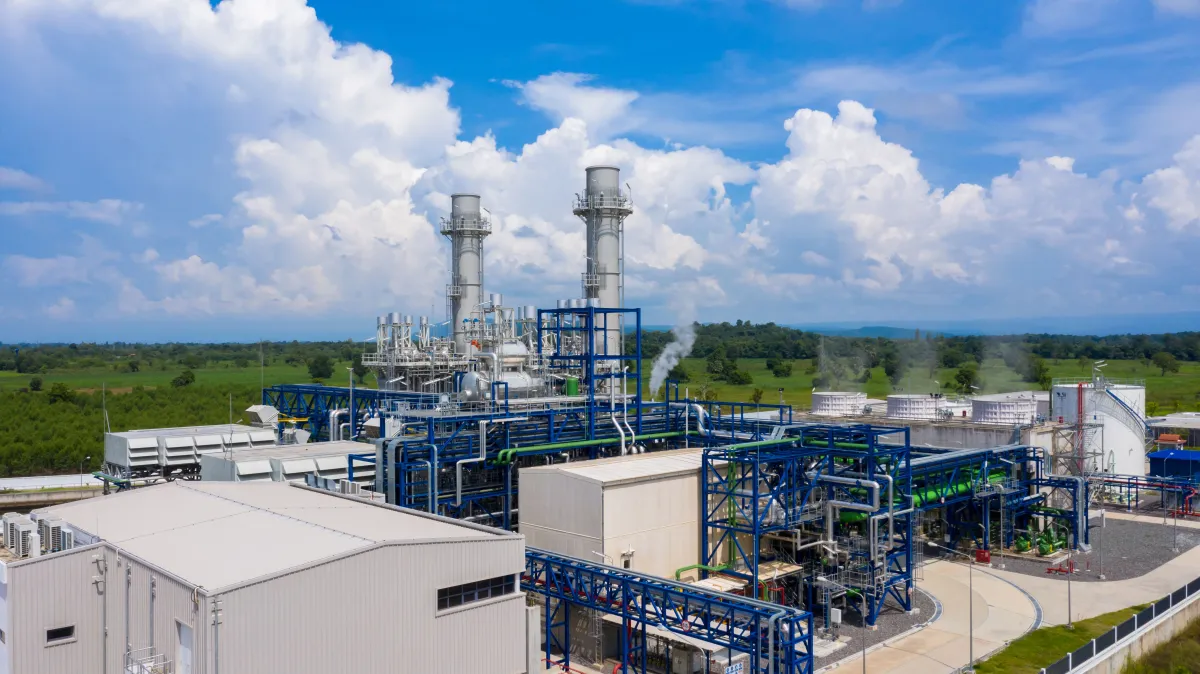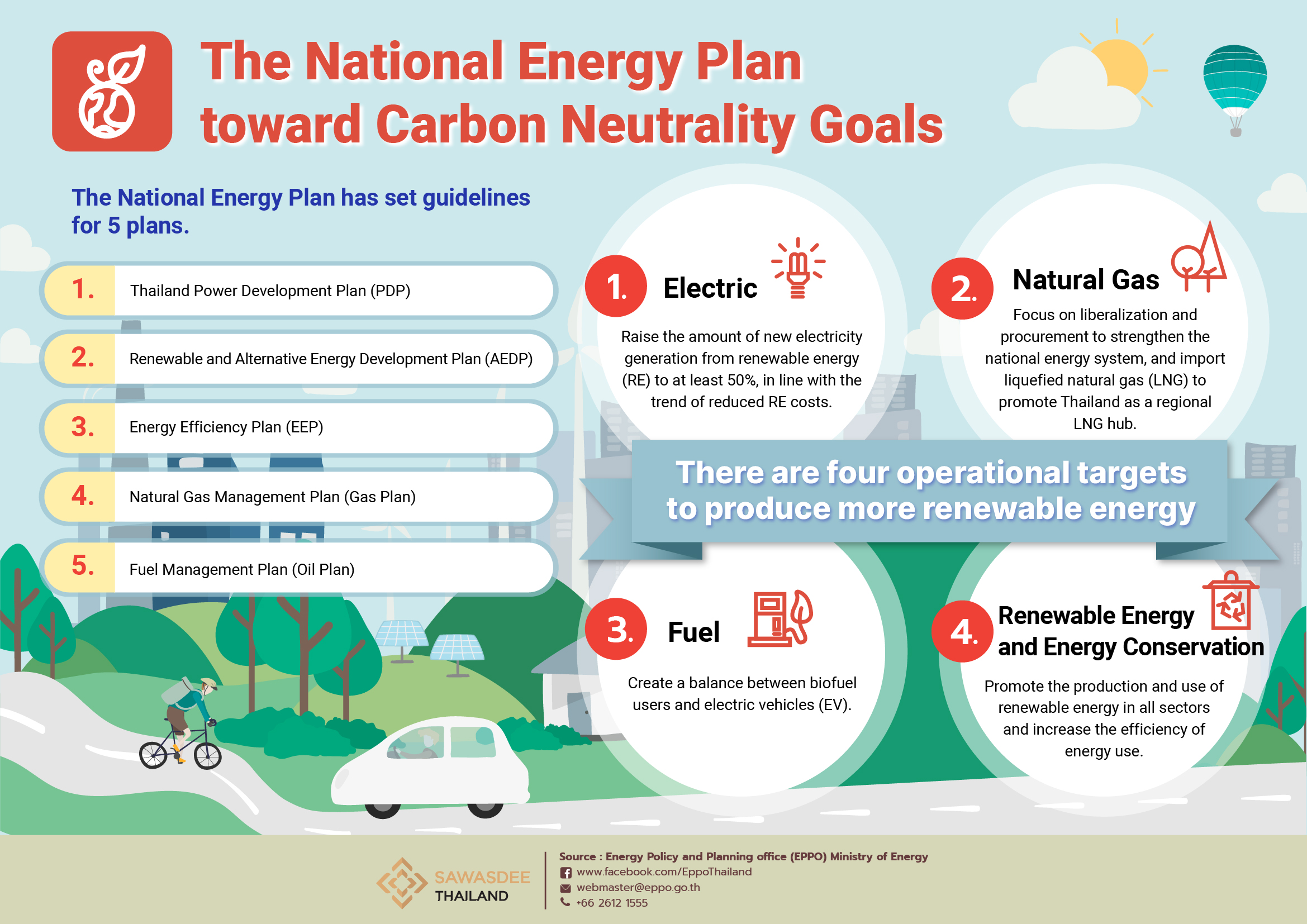
The National Energy Plan moves toward carbon neutrality goals
Thailand is in the process of drafting a framework plan called “National Energy,” which would lay out principles for the country’s energy policy, with the goal of lowering carbon dioxide emissions to zero (carbon neutrality) by 2065-2070.
The National Energy Plan has set guidelines for five plans:
1. Thailand Power Development Plan (PDP);
2. Renewable and Alternative Energy Development Plan (AEDP);
3. Energy Efficiency Plan (EEP);
4. Natural Gas Management Plan (Gas Plan);
5. Fuel Management Plan (Oil Plan).

It has also defined four operational targets to drive for more renewable energy by growing renewable energy to create a balance that comes from wind, biomass, and solar energy, particularly as follows:
1. Electric: Raise the amount of new electricity generation from renewable energy (RE) to at least 50% in line with the trend of reduced RE costs, taking into account the cost of the energy storage system (ESS) as well as the cost of long-term power supply;
2. Natural Gas: Focus on liberalization and procurement to strengthen the national energy system and import liquefied natural gas (LNG) to promote Thailand as a regional LNG hub;
3. Fuel: Thailand must adjust the transportation energy plan and consider the transition management to create a balance between biofuel users and electric vehicles (EV);
4. Renewable Energy and Energy Conservation: Promote the production and use of renewable energy in all sectors and increase the efficiency of energy use in all sectors.
The National Energy Plan Framework is aiming for clean energy in order to prepare for the transition to a low-carbon economy, including enhancing competitiveness and attracting international investors, while also taking power system stability into account. Clean energy will be expedited within the next decade, and this is a strategy that people can participate in from the start, as it is scheduled to be implemented in 2023.